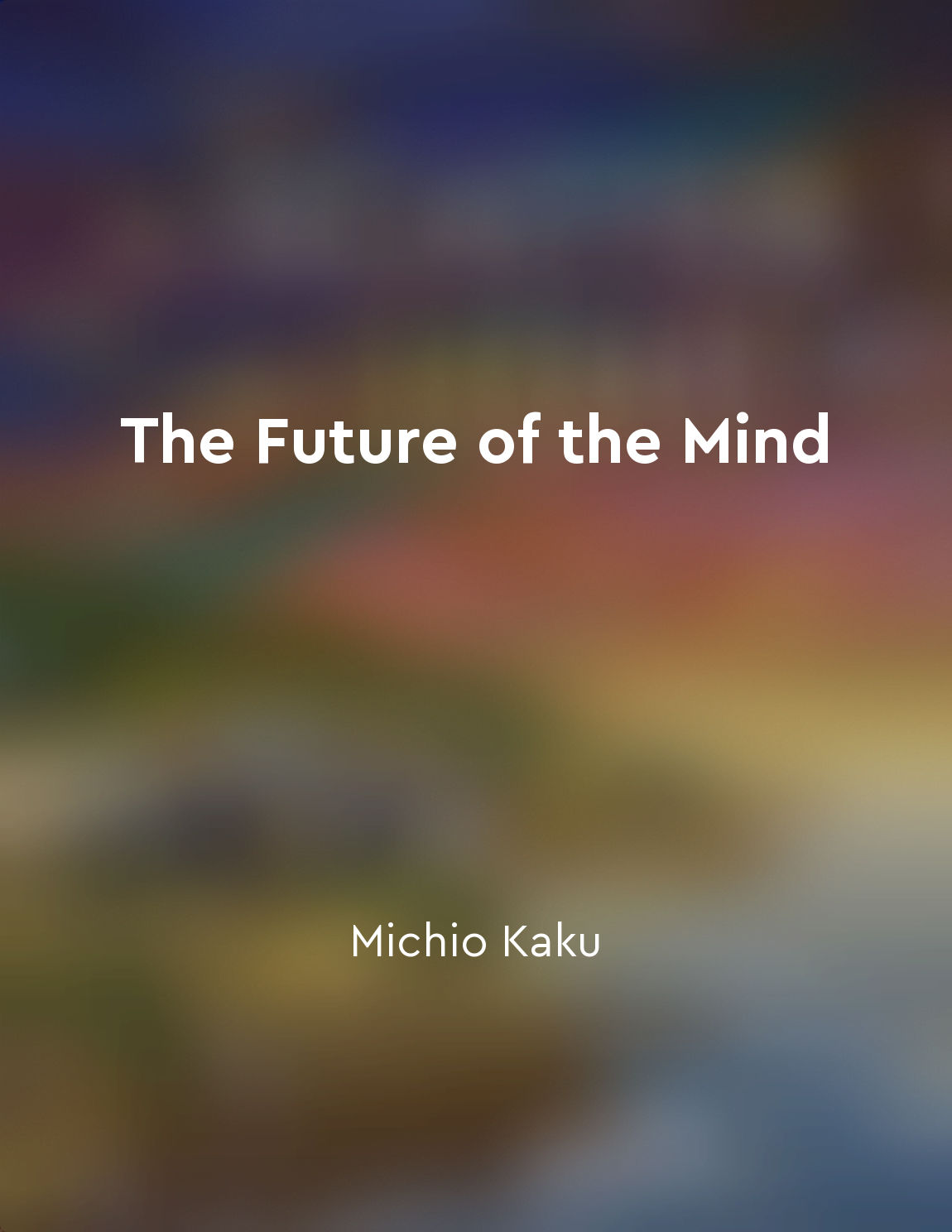Brain imaging techniques provide a window into cognitive processes from "summary" of The Future of the Mind by Michio Kaku
Brain imaging techniques have revolutionized the field of neuroscience, allowing scientists to peer inside the brain and observe its inner workings in real-time. These techniques provide a unique window into the cognitive processes that underlie human thought, behavior, and emotions. By mapping brain activity, researchers can gain valuable insights into how the brain processes information, forms memories, and makes decisions. One of the most widely used brain imaging techniques is functional magnetic resonance imaging (fMRI), which measures changes in blood flow to different areas of the brain in response to specific tasks or stimuli. By analyzing fMRI data, scientists can identify patterns of brain activity associated with various cognitive functions, such as language processing, attention, and emotion regulation. This allows them to create detailed maps of the brain regions involved in these processes. Another powerful brain imaging tool is positron emission tomography (PET), which uses radioactive tracers to visualize brain activity at the molecular level. PET scans can reveal abnormalities in neurotransmitter levels or receptor binding, providing valuable information about the underlying causes of neurological and psychiatric disorders. This information can help guide the development of new treatments and interventions for these conditions. Advances in brain imaging technology have also led to the rise of neuroimaging studies, which seek to uncover the neural mechanisms that underlie complex cognitive processes such as creativity, problem-solving, and decision-making. By combining different imaging modalities, such as fMRI, PET, and electroencephalography (EEG), researchers can create a more comprehensive picture of how the brain functions under different conditions.- Brain imaging techniques offer a powerful tool for understanding the intricate workings of the human mind. By providing a direct window into cognitive processes, these techniques have the potential to revolutionize our understanding of the brain and lead to new insights into the nature of consciousness, intelligence, and creativity. Through continued research and technological innovation, scientists hope to unlock the mysteries of the mind and pave the way for new discoveries in the field of neuroscience.


